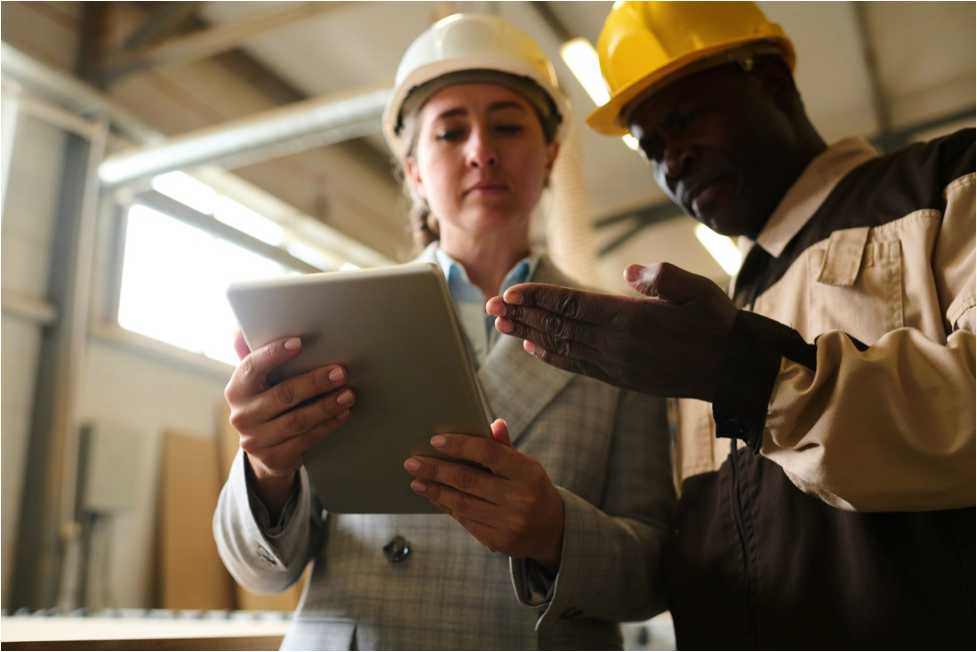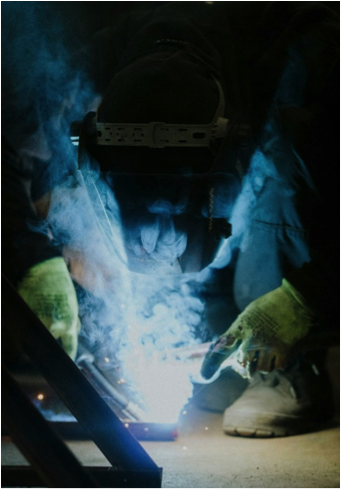Enhancing Energy Efficiency and Sustainability: Retrofitting Tunnel Pasteurizers
PRO Engineering / Manufacturing Inc.
- Introduction
- Brief overview of tunnel pasteurizers
- Importance of energy efficiency and sustainability in industrial processes
- Current Challenges in Tunnel Pasteurizer Efficiency
- Energy consumption and its environmental impact
- Carbon footprint and water usage considerations
- Methods for Retrofitting Tunnel Pasteurizers
- Heat recovery systems
- Insulation improvements
- Integration of alternative energy sources
- Benefits of Retrofitting Tunnel Pasteurizers
- Reduced energy consumption and cost savings
- Lower carbon emissions
- Decreased water usage.
- Conclusion
- Recap of key points
- Importance of adopting energy-efficient and sustainable practices in industrial processes
- Encouragement for businesses to consider retrofitting tunnel pasteurizers for a greener future.
Introduction
In the realm of food and beverage production, tunnel pasteurizers play a crucial role in ensuring product safety and shelf life. These large-scale machines are integral to the thermal processing of food and beverages, effectively sterilizing them by subjecting them to high temperatures for a specified period.
However, while tunnel pasteurizers are indispensable to the industry, they are also notorious for their high energy consumption and substantial environmental impact. In an era where sustainability is paramount, the need to retrofit tunnel pasteurizers for enhanced energy efficiency has never been more urgent.
Current Challenges in Tunnel Pasteurizer Efficiency
Tunnel pasteurizers, although indispensable, pose significant challenges in terms of energy consumption and environmental impact. The conventional operation of these machines involves the utilization of large amounts of electricity or fossil fuels to maintain the necessary temperatures for pasteurization.
Consequently, this results in a considerable carbon footprint, contributing to climate change and environmental degradation. Moreover, tunnel pasteurizers often require substantial volumes of water for cooling purposes, further exacerbating their environmental strain. Addressing these challenges is imperative for reducing the ecological impact of food and beverage production and moving towards a more sustainable future.
Methods for Retrofitting Tunnel Pasteurizers
- Heat Recovery Systems: Heat recovery systems offer a promising solution for improving the energy efficiency of tunnel pasteurizers. These systems work by capturing waste heat generated during the pasteurization process and repurposing it for other heating applications within the production facility.
For example, in a food processing plant utilizing a tunnel pasteurizer, the heat recovered from the pasteurizer could be used to preheat water for cleaning purposes or to heat the facility during colder months. By utilizing this otherwise wasted heat, businesses can significantly reduce their reliance on external energy sources and lower their overall energy consumption.
Additionally, heat recovery systems contribute to cost savings by minimizing heating expenses and improving overall operational efficiency. Some advanced heat recovery systems even incorporate technologies such as heat exchangers and thermal storage to maximize efficiency and flexibility.
- Insulation Improvements: Another effective method for enhancing the energy efficiency of tunnel pasteurizers is through insulation improvements. Upgrading insulation materials and sealing gaps in the pasteurizer structure can minimize heat loss during operation, thereby reducing the amount of energy required to maintain optimal temperatures.
For instance, by installing high-performance insulation materials such as aerogels or vacuum insulation panels, businesses can achieve greater thermal efficiency and reduce energy consumption. Additionally, improved insulation can contribute to a more comfortable working environment for employees by reducing heat loss and fluctuations, leading to increased productivity and employee satisfaction.
- Integration of Alternative Energy Sources:
Embracing renewable energy sources such as solar or wind power presents an opportunity to further enhance the sustainability of tunnel pasteurization processes. By harnessing clean energy from renewable sources, businesses can reduce their reliance on fossil fuels and minimize their environmental impact. For example, a food processing facility could install solar panels on the roof of the production facility to generate electricity to power tunnel pasteurizers.
Similarly, wind turbines could be installed on-site to provide an additional source of renewable energy. Integrating alternative energy sources into tunnel pasteurization operations not only reduces carbon emissions but also demonstrates a commitment to environmental stewardship. Furthermore, advancements in energy storage technologies, such as batteries or hydrogen fuel cells, enable greater integration of intermittent renewable energy sources, ensuring reliable and sustainable power supply for tunnel pasteurizers even during periods of low renewable energy generation.
Benefits of Retrofitting Tunnel Pasteurizers
The benefits of retrofitting tunnel pasteurizers for enhanced energy efficiency and sustainability are manifold. By adopting these retrofitting measures, businesses can:
- Reduce energy consumption and lower operating costs.
- Minimize their carbon footprint and mitigate climate change impacts.
- Enhance operational efficiency and improve overall productivity.
- Demonstrate corporate social responsibility and environmental leadership.
- Enhance brand reputation and appeal to environmentally conscious consumers.
Conclusion
In conclusion, retrofitting tunnel pasteurizers for enhanced energy efficiency and sustainability is not just a prudent business decision—it’s a moral imperative. By embracing innovative technologies and sustainable practices, businesses can pave the way for a greener, more eco-friendly future.
Let us strive towards a world where efficiency and sustainability go hand in hand, one pasteurizer at a time. Together, we can make a meaningful difference in protecting the planet for future generations.
REFERENCES:
- Heat Recovery Systems:
- U.S. Department of Energy – Energy Efficiency and Renewable Energy: https://www.energy.gov/eere/energybasics/articles/heat-recovery
- International Energy Agency (IEA) – Heat Recovery Technology: https://www.iea.org/topics/heat-recovery-technology
- Insulation Improvements:
- American Society of Heating, Refrigerating and Air-Conditioning Engineers (ASHRAE) – Insulation Materials: https://www.ashrae.org/
- U.S. Environmental Protection Agency (EPA) – Insulation and Air Sealing: https://www.epa.gov/energy/insulation-and-air-sealing
- Integration of Alternative Energy Sources:
- National Renewable Energy Laboratory (NREL): https://www.nrel.gov/
- International Renewable Energy Agency (IRENA): https://www.irena.org/
- Case Studies and Success Stories:
- Sustainable Energy for All (SEforALL) – Case Studies: https://www.seforall.org/case-studies
- World Business Council for Sustainable Development (WBCSD) – Case Studies: https://www.wbcsd.org/Overview/Projects/Case-Studies
- General Resources on Energy Efficiency and Sustainability:
- United Nations Sustainable Development Goals (SDGs): https://sdgs.un.org/
- International Energy Agency (IEA): https://www.iea.org/
- United Nations Environment Programme (UNEP): https://www.unep.org/
ABOUT PRO ENGINEERING / MANUFACTURING INC.
Trusted | Knowledge | Quality
We have been involved in pasteurizers since 1977.
PRO Engineering / Manufacturing Inc. has developed a range of small, medium, and large-sized tunnel & batch pasteurizers to fit the needs of BrewMasters and Beverage Makers. When our customers asked for more compact as well as full-size tunnel pasteurizers, PRO developed models to fit our customers’ needs. Then our customers needed a batch pasteurizer. We now provide batch pasteurizers; PRO is a business that continually innovates to meet customer needs.
For more than 40 years, we have been delivering solutions for beverage product shelf stability and consumption safety.
Edward A. Michalski CEO
Ed Michalski started his career in the beverage industry by designing stainless steel, higher flow, spray headers for Pabst Brewing. Along with the header design he also developed a process to produce the new headers.
Ed, along with his brother David, formed PRO Engineering / Manufacturing Inc. Based on what they learned by re-designing and refurbishing other manufacturers’ pasteurizers, Ed and PRO started to offer the pasteurizer marketplace superior new pasteurizers. PRO Engineering / Manufacturing Inc. has been designing and manufacturing great pasteurizers for over four decades.
For more information on tunnel and batch pasteurization contact PRO Engineering / Manufacturing, Inc. at [email protected] or call (414) 362-1500 and ask for Ed Michalski, CEO.
Partner with a PRO!… PRO Engineering / Manufacturing Inc.
Internal Resources:






Recent Comments